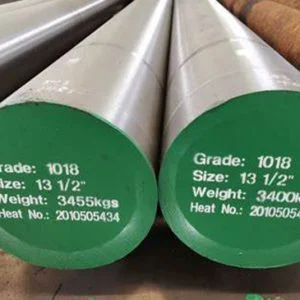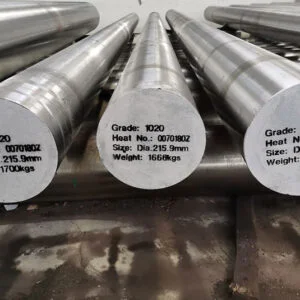Introduction

In industrial applications, the choice of piping material is critical for ensuring efficiency, durability, and cost-effectiveness. Carbon steel pipes have long been a popular choice due to their numerous advantages over other materials. In this blog post, we will delve into the key advantages of carbon steel pipes and why they are preferred in various industrial settings.
Key Advantages of Carbon Steel Pipes
- Strength and Durability: Carbon steel are renowned for their exceptional strength and durability. They can withstand high pressure and temperature conditions, making them ideal for transporting fluids and gases in industrial environments.
- Corrosion Resistance: Despite being primarily made of iron and carbon, carbon steel exhibit excellent corrosion resistance, especially when compared to other metals. This resistance is primarily due to the formation of a protective oxide layer on the surface of the steel, which prevents rust and corrosion.
- Cost-Effectiveness: One of the major advantages of carbon steel pipes is their cost-effectiveness. Compared to other materials like stainless steel or copper, carbon steel are more affordable, making them a preferred choice for large-scale industrial projects where cost plays a significant factor.
- Versatility: Carbon steel are highly versatile and can be easily modified to suit specific industrial requirements. They are available in various sizes, thicknesses, and grades, allowing for customization based on the needs of different applications.
- Ease of Installation and Maintenance: Another advantage of carbon steel is their ease of installation and maintenance. They can be welded, bent, and threaded with relative ease, simplifying the installation process. Additionally, carbon steel require minimal maintenance, reducing downtime and overall operational costs.
Applications of Carbon Steel Pipes
- Oil and Gas Transportation: Carbon steel are the backbone of oil and gas transportation infrastructure. They are used for both upstream and downstream operations, including drilling, extraction, refining, and distribution. These pipes are capable of withstanding high-pressure conditions and are resistant to corrosion from the harsh chemicals often encountered in the oil and gas industry.
- Water Supply and Drainage Systems: Municipal water supply and drainage systems heavily rely on carbon steel . These pipes are preferred for their durability, which ensures long-term reliability in delivering clean water to communities and efficiently managing wastewater. Additionally, carbon steel are resistant to corrosion, making them suitable for underground installations where they may be exposed to moisture and soil conditions.
- Chemical Processing Plants: In chemical processing plants, where various corrosive substances are handled, carbon steel are widely used due to their resistance to corrosion. These pipes are essential for transporting chemicals between different processing units and storage tanks. Their ability to withstand high temperatures and pressures makes them indispensable in industries such as petrochemicals, pharmaceuticals, and specialty chemicals.
- Power Generation Facilities: Carbon steel play a crucial role in power generation facilities, including coal-fired, natural gas, and nuclear power plants. These pipes are used for conveying steam, water, and other fluids throughout the power generation process, from boiler systems to turbine generators. Their high strength and thermal conductivity make them well-suited for handling the extreme conditions present in power plants.
- HVAC Systems: Heating, ventilation, and air conditioning (HVAC) systems rely on carbon steel for distributing hot and cold water, steam, and refrigerants throughout buildings and industrial facilities. These pipes provide efficient thermal conductivity, helping to regulate indoor temperatures effectively. Additionally, their durability ensures reliable performance over the long term, reducing maintenance requirements in HVAC systems.
- Structural Support in Construction: Carbon steel pipes are used as structural components in construction projects, providing support for buildings, bridges, and infrastructure. They are often used in applications where high strength and rigidity are required, such as in piling for foundations, structural columns, and trusses. The versatility of carbon steel pipes allows engineers to design robust and cost-effective structures for various construction projects.
Overall, the versatility, durability, and corrosion resistance of carbon steel pipes make them indispensable in a wide range of industrial applications, contributing to the efficiency and reliability of essential infrastructure across different sectors.
Comparison of Carbon Steel Pipes with Other Materials

| Property | Carbon Steel Pipes | Stainless Steel Pipes | Copper Pipes |
|---|---|---|---|
| Strength | High | High | Medium |
| Corrosion Resistance | Good | Excellent | Excellent |
| Cost | Affordable | Expensive | Expensive |
| Versatility | High | Medium | Low |
| Maintenance Requirement | Low | Low | Low |
Conclusion
In conclusion, carbon steel pipes offer a multitude of advantages that make them an attractive choice for various industrial applications. Their strength, durability, corrosion resistance, cost-effectiveness, and versatility make them a preferred option for transporting fluids and gases in demanding environments. By understanding the unique benefits of carbon steel pipes, industries can make informed decisions when selecting piping materials for their projects.
FAQ
Q:Are carbon steel pipes suitable for high-temperature applications?
A:Yes, carbon steel pipes are capable of withstanding high temperatures, making them suitable for applications where elevated temperatures are involved, such as in power generation and chemical processing plants.
Q:Can carbon steel pipes be used for underground installations?
A:Yes, carbon steel pipes can be used for underground installations, but proper corrosion protection measures should be implemented to prevent degradation over time.
Q:How do carbon steel pipes compare to PVC pipes in terms of durability?
A:Carbon steel pipes are generally more durable than PVC pipes, especially in industrial applications where higher pressures and temperatures are involved. PVC pipes may be suitable for certain low-pressure applications but may not withstand harsh industrial conditions.
Q:What is the expected lifespan of carbon steel pipes?
A:The lifespan of carbon steel pipes can vary depending on factors such as the environment, maintenance practices, and the specific application. However, with proper maintenance and corrosion protection, carbon steel pipes can last for several decades.
Q:Are there any environmental considerations associated with carbon steel pipes?
A:While carbon steel is recyclable, the production process may involve carbon emissions. However, compared to other materials like PVC, carbon steel is generally considered more environmentally friendly due to its recyclability and durability.
